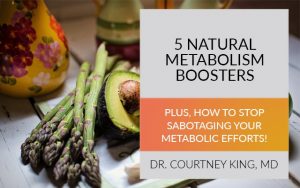Zinc is a very important mineral necessary for every single human to stay healthy!! Zinc is found in cells throughout the body and helps the immune system to fight off invading bacteria and viruses. The body also needs zinc to make proteins and DNA.
During pregnancy, infancy, and childhood, the body needs zinc to grow and develop properly. Zinc also supports wound healing, and is important for our senses of taste and smell. In many studies, Zinc has been shown to improve mental capacity in those over 50.
Zinc deficiency can cause hair loss, erectile dysfunction, diarrhea, soft tissue sores, cognitive decline and loss of appetite. Problems with wound healing, decreased ability to taste food (the sense of taste and smell diminish), and lower alertness levels can also occur if your levels of zinc are suboptimal.
I find a zinc deficiency in almost every single patient that I have seen with any cognitive decline or dementia.
Zinc is stored and released in the brain from nerve cells that are also responsible for releasing the neurotransmitter, glutamate. The released Zinc can act on glutamate receptors and other voltage-gated ion channels in the brain. Zinc can also modulate synapses (allowing cells to have synaptic plasticity). Both of these effects contribute significantly to learning and memory. Zinc deficiency affects short-term memory more greatly than it affects long-term memory.
Another reason patients with Dementia or Alzheimer’s might have a zinc deficiency is that zinc may not be able to enter their bloodstream effectively. To do so, one must produce a specific acid that is released by the pancreas known as “Picolinic acid.” When foods containing Zinc, or Zinc supplements, reach the small intestine (duodenum), the pancreas excretes Picolinic acid. This acid binds with Zinc and moves it across your intestine wall pushing it into your bloodstream.
Picolinic acid is created in the liver and kidneys from the Amino acid tryptophan (Yep, the one famous for making you sleepy after eating too much turkey!!!), and it then moves into the pancreas. So, if you have diabetes or pre-diabetes and pancreas is overworked, you will not be excreting enough picolinic acid. If this is occuring, you are not providing enough Zinc to your brain. Therefore, many people with any blood sugar, pancreas, liver or kidney issues, will need to supplement their zinc.
A particular type of Zinc you need to supplement, is the one that binds with Picolinic Acid, called “Zinc Picolinate.” There are other types of Zinc supplements such as Zinc Citrate and Zinc Gluconate on the market, but they are not as well absorbed as Zinc Picolinate.
The body also has many many processes for which Zinc is needed in abundance. This, and the fact that our soil is so nutrient depleted these days, is why so many people are prone to zinc deficiency..
A few ways the body uses Zinc:
- >100 chemical reactions involving enzymes require zinc
- Helps prevent Arteriosclerosis
- With DNA to prevent Dementia or Alzheimer’s disease
- With cellular activity
- In the kidneys to maintain the acid-base balance
- In the removal of carbon dioxide from the body
- To make pancreatic enzymes
- To help the liver detoxify alcohol
- And the list goes on and on.
Foods You Should Add To Your Diet To Get More Zinc:
The food highest in zinc is OYSTERS, by far. So, treat yourself more often when you see oysters on the menu!! Other foods that are high in Zinc include beef, lamb, cheese, yeasts, shrimp, herring, sunflower seeds, pumpkin seeds, sesame seeds, wheat germ & bran, mushrooms, spinach, squash, asparagus, collard greens, broccoli, chard, miso and maple syrup. Most fortified cereals and multivitamins also contain zinc.
Zinc in excessive amounts can be toxic for your body. A safe amount to consume Zinc is 20 – 25 mg per day. Do not exceed more than 40 mg per day, unless you are known to be deficient, and are under the care of your doctor. Toxic effects of too much Zinc can include stomach pain, nausea, vomiting, cramps, and diarrhea.
So, do yourself a favor and incorporate more zinc rich foods into your diet!! If you are at risk of Alzheimer’s or cognitive decline, get your zinc levels checked and keep them optimal for prevention!! If you have






Glad to read articles addressing cognitive decline. The increase in people being diagnosed with Alzheimers Disease is increasing three fold in this country. More information on the importance of diet, exercising, testing, supplementation is badly needed.